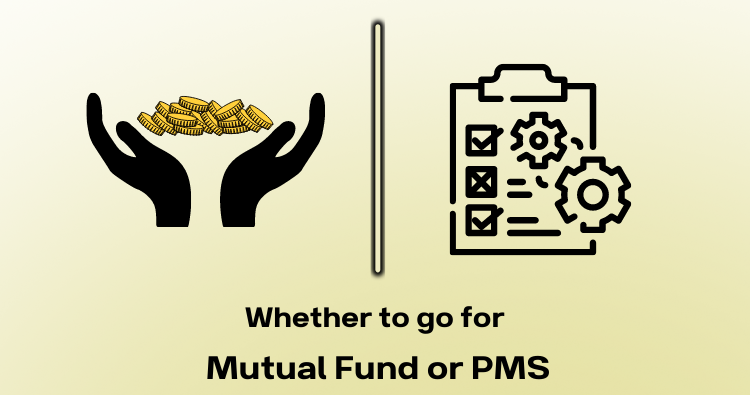


Portfolio Management Services (PMS) may sound like mutual funds. Are you confused between PMS and Mutual Funds? While there are similarities, they are not the same.
Before understanding the differences between the two, we need to understand mutual and PMS.
Mutual Funds
When an entity invests money in stocks, bonds, money market instruments, or other securities after collecting funds from several investors with similar investment goals, such a financial instrument is known as a Mutual Fund. And by determining a scheme's "Net Asset Value," or NAV, the returns earned from this collective investment are distributed proportionately among the investors after considering any applicable expenses and levies.
Portfolio Management Services
PMS is a financial service provided by the portfolio manager to achieve the required rate of return while maintaining the desired level of risk. A portfolio manager is a qualified investment professional with extensive knowledge of the market's various instruments who focuses on analyzing the investor's investment goals. Stocks, fixed income, commodities, real estate, other structured products, and cash can all be included in an investment portfolio.
PMS is a customized service offered as per the investor's return requirements and the ability and willingness to assume the risk. A PMS drafts an Investment Policy Statement (IPS) to understand the financial position and needs of the client. The portfolio manager ensures that the return requirements coincide with the risk profile.
Now that we know all about mutual funds and portfolio management services, there are a few ways in which you can decide on what type of investment avenue suits you the best.
By comparing mutual funds and PMS, you can make investment decisions according to your financial objectives and ability to take risks.
This blog is purely for educational purposes and not to be treated as personal advice. Mutual fund investments are subject to market risks, read all scheme-related documents carefully.
At Conquer Investment, we truly care about our clients' goals - and we believe it shows in our attention to detail and service.
Mumbai, Maharashtra
+91 8850708626 / +91 9004484892
Copyright © Conquer Investment 2021. All rights reserved.